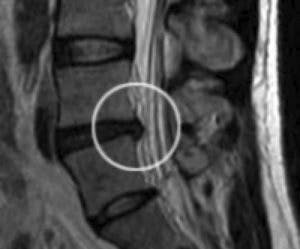Two very common scenarios are seen every day at Gold Medal Physical Therapy and other clinics across America:
You bend over one day to tie your shoes before work and feel a jolt shoot from your back all the way down your right leg.
You recently retired and want to take control of your back or neck pain that you have been dealing with for decades so that you can enjoy time with your grandchildren or traveling the world.

When this happens, it is common for people to seek out an MRI to try to determine what is truly going on.
After an MRI, you receive a report detailing the findings. The report will include many words such as degenerative, desiccation, osteophyte, bone spur, spondylosis, herniation, or bulge.
So would mine, and I am completely pain-free!
A 2014 study by Brinjiikji et al. reviewed MRIs of over 3,000 people grouped by decade from people in their 20s to people in their 80s. Everyone in the study had no history of back pain and had full pain-free function.
Thirty percent of participants in their 20s had lumbar (low back) disc bulges and seventy-three percent of participants in their 70s had lumbar disc bulges – without even knowing!
A similar 2015 study by Nakashima et al. showed that eighty-seven percent of the over 1,100 study participants had a disc bulge in the cervical spine (neck) without any pain, history of pain, or other symptoms.
Just because there are findings on an MRI report does not mean that your pain will be forever, unchangeable, or that you will require surgery to fix it. Every day in our clinics we help people regain function, decrease pain, and avoid surgery.
Often, findings on an MRI report can be viewed as simply a natural process of life, just as one’s hair turning gray. We observe what is on the report, but then treat the deficits we can change as physical therapists: muscular weakness, flexibility, mobility, etc.
There are times when an MRI report or a patient’s current symptoms and presentation will mean they need further medical intervention such as consultation with an orthopedic surgeon or neurosurgeon. We as physical therapists are well versed in noticing the signs and symptoms of a patient that needs to seek out further consultation, and we will refer out for anything that we believe will not respond to conservative care or is an emergency.
